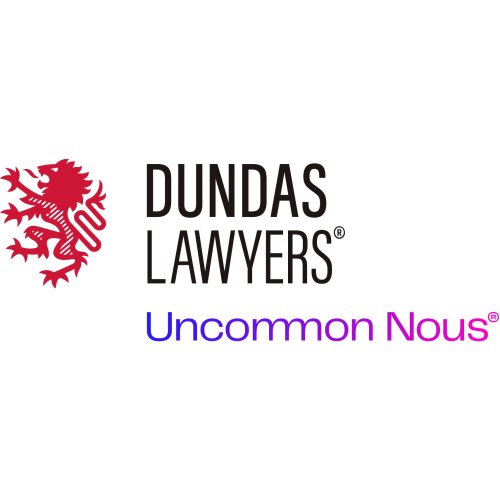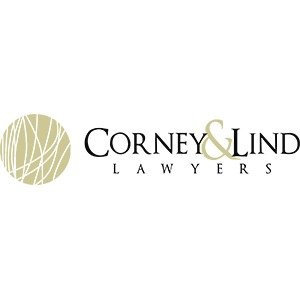Best Patent Lawyers in Brisbane
Share your needs with us, get contacted by law firms.
Free. Takes 2 min.
List of the best lawyers in Brisbane, Australia
About Patent Law in Brisbane, Australia
Patent law in Brisbane, Australia, is a critical component of intellectual property rights protection. Patents are legal rights granted to inventors, giving them exclusive rights to use, manufacture, and commercialize their inventions for a specified period. In Australia, patents are issued by IP Australia, a government agency responsible for administering patents, trademarks, and designs. Brisbane, as a thriving hub for innovation and business, sees a significant number of patent filings from diverse sectors, including technology, health, and engineering.
Why You May Need a Lawyer
Securing a patent involves a complex legal process that includes researching prior patents, drafting and filing the application, responding to legal challenges, and enforcing patent rights. You may need a lawyer's assistance in the following situations:
- Drafting and filing a patent application to ensure all legal requirements are met.
- Conducting a patent search to determine the novelty of your invention.
- Responding to office actions and legal challenges from the patent office.
- Licensing your patent to other parties for commercial use.
- Enforcing your patent rights in case of infringement.
- Advising on international patent protection if you plan to market your invention globally.
Local Laws Overview
In Brisbane, as part of Australia, the Patents Act 1990 governs the patent system. Key aspects include:
- A patent can be granted for any device, substance, method, or process that is new, inventive, and useful.
- The term of protection for a standard patent is up to 20 years, while an innovation patent lasts eight years.
- Applicants must disclose their invention fully and include a complete description and claims that define the invention’s scope.
- The grace period allows inventors a 12-month period before filing to disclose their invention without losing patent rights.
- Patent applications can take several years to be granted, depending on the complexity and the workload of IP Australia.
Frequently Asked Questions
What is the difference between a standard patent and an innovation patent?
A standard patent provides protection for up to 20 years and is suitable for inventions that have a long commercial life. An innovation patent, which is no longer available for new applications as of August 2021, was designed for inventions with a shorter market life and offered protection for up to eight years.
How do I know if my invention is patentable?
Your invention must be new, involve an inventive step, and be capable of industrial application to be patentable. Conducting a patent search can help determine this.
How long does it take to get a patent in Brisbane?
It can take anywhere from several months to several years to get a patent in Brisbane, depending on the complexity of the application and the response time of IP Australia.
Can I file a patent application myself?
While you can file a patent application yourself, it is often advisable to engage a patent attorney to navigate the complex legal requirements and improve the chances of your application being successful.
What is a provisional patent application?
A provisional patent application allows you to establish an early filing date and provides a 12-month period to develop your invention further and decide if you wish to proceed with a standard patent application.
How are patent disputes resolved?
Patent disputes can be resolved through negotiation, mediation, arbitration, or court proceedings, depending on the nature and severity of the dispute.
What are patent claims?
Patent claims define the scope of the invention the patent covers. They are used to determine whether an item infringes on the patent once it is granted.
Can patents be renewed or extended?
Standard patents can generally not be renewed or extended beyond their maximum term of 20 years, except for pharmaceuticals, which may be eligible for an extension of up to 5 years under certain conditions.
Is my Australian patent valid overseas?
An Australian patent provides protection only in Australia. To protect your invention overseas, you will need to file separate applications in each country or a combined application through international agreements like the Patent Cooperation Treaty (PCT).
What happens if I don't enforce my patent?
If you do not enforce your patent rights, others may use your invention without permission, potentially impacting your commercial advantages and financial returns. Enforcing a patent is the responsibility of the patent holder.
Additional Resources
Several resources can assist with patent-related inquiries and issues:
- IP Australia: The official government agency responsible for patents, offering detailed guidance and resources on their website.
- Queensland Law Society: Provides referrals and information on intellectual property lawyers who specialize in patent law.
- Australian Patent Office: Offers a wealth of information regarding patent processes, legal framework, and updates.
- Brisbane Inventors Association: A local organization that supports inventors with resources and networking opportunities.
Next Steps
If you need legal assistance with patents in Brisbane, consider the following steps:
- Conduct a preliminary patent search to assess the novelty of your invention.
- Consult with a qualified patent lawyer to discuss your specific needs and the best course of action.
- Prepare all necessary documentation, including detailed descriptions and claims of your invention.
- File your patent application with IP Australia, or engage a patent attorney to do so on your behalf.
- Regularly monitor the status of your application and respond to any office actions promptly.
- Consider international patent protection if you intend to market your invention outside Australia.
- Keep informed about changes in patent law and emerging trends that may affect your patent rights.
Lawzana helps you find the best lawyers and law firms in Brisbane through a curated and pre-screened list of qualified legal professionals. Our platform offers rankings and detailed profiles of attorneys and law firms, allowing you to compare based on practice areas, including Patent, experience, and client feedback.
Each profile includes a description of the firm's areas of practice, client reviews, team members and partners, year of establishment, spoken languages, office locations, contact information, social media presence, and any published articles or resources. Most firms on our platform speak English and are experienced in both local and international legal matters.
Get a quote from top-rated law firms in Brisbane, Australia — quickly, securely, and without unnecessary hassle.
Disclaimer:
The information provided on this page is for general informational purposes only and does not constitute legal advice. While we strive to ensure the accuracy and relevance of the content, legal information may change over time, and interpretations of the law can vary. You should always consult with a qualified legal professional for advice specific to your situation.
We disclaim all liability for actions taken or not taken based on the content of this page. If you believe any information is incorrect or outdated, please contact us, and we will review and update it where appropriate.











